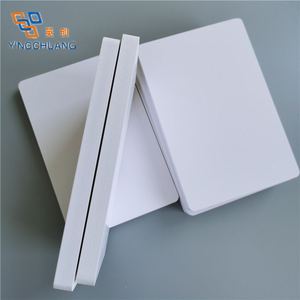Một
Cửa nhựa PVC sẽ là một món đồ cần thiết khi xây dựng hoặc sửa sang một ngôi nhà và nó hiện đang được bán tại Alibaba.com. Những vật dụng bền và chắc này có thể giúp tạo sự riêng tư cũng như giảm bớt tiếng ồn trong không gian.
Cửa nhựa PVC có nhiều màu sắc và kiểu dáng khác nhau để phù hợp nhất với các kiểu dáng khác nhau. Duyệt qua hàng nghìn sản phẩm được cung cấp với mức giá tuyệt vời.
Lựa chọn
Cửa nhựa PVC trên Alibaba.com là lựa chọn lý tưởng cho những người trong không gian xây dựng và tân trang nhà cửa. Nếu thêm một cánh cửa mới hoặc thay thế một cái cũ, nó sẽ ngay lập tức biến đổi diện mạo của căn phòng.
Cửa nhựa PVC có thể được mua với các màu như nâu, nâu hoặc xám. Nhiều phong cách mộc mạc hoặc truyền thống có sẵn hoặc người mua có thể tìm thấy một thiết kế kiểu dáng đẹp và hiện đại hơn. Một số thương hiệu dành cho phong cách trượt và những thương hiệu khác sẽ xoay từ bản lề.
Nhà cung cấp cửa nhựa PVC có nhiều loại có thể được đặt trong bất kỳ phòng nào như phòng ngủ, phòng tắm hoặc tủ quần áo. Độ dày sẽ khác nhau tùy thuộc vào sản phẩm.
Thiết kế cửa nhựa PVC có thể xử lý một lượng ẩm thấp và thường được sử dụng cho nội thất. Nhiều nhà cung cấp cung cấp hỗ trợ dịch vụ sau bán hàng, bao gồm trợ giúp kỹ thuật trực tuyến hoặc video và phụ tùng thay thế.
Các tùy chọn
Cửa nhựa PVC trên Alibaba.com giúp bạn dễ dàng làm đẹp nhà hoặc văn phòng. Mua sắm ngay bây giờ và duyệt qua những cái có tính năng tốt nhất. Nhiều nhà sản xuất bán chúng như một chiếc hoặc mua với số lượng lớn để được chiết khấu tốt hơn. Thời gian vận chuyển và giao hàng có thể khác nhau.














